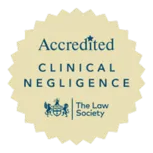
NHS Trust Apologises to Family and Admits they Failed Them
An inquest into the death of a six-year old boy who died of septic shock in May 2019 has today found that more could have been done to prevent his death.


Senior Associate Solicitor, Medical Negligence
Being diagnosed with Hepatitis C can be extremely distressing for you and your family. If you develop Hepatitis C in a hospital, possibly because of a blood transfusion or an unsafe injection, then you may have grounds to claim compensation.
World Hepatitis Day – is recognised annually on July 28th, which is the birthday of Dr. Baruch Blumberg, who is the Nobel Prize winning doctor for the discovery of the Hepatitis B Virus and Vaccine back in 1967.
Every year there are over one million deaths due to Hepatitis, making the fight for change an ongoing effort. World Hepatitis Day is a global effort to raise awareness of the condition and improve prevention, diagnosis and treatment. So, it’s important to us as Medical Negligence Solicitors to make sure you know what to do if you’ve fallen ill with Hepatitis C because of someone else’s mistake.
We have a strong track record of helping people claim compensation for hospital-acquired infections, so if you’ve developed Hepatitis C because of medical negligence, we’ll be happy to discuss your situation with you.
Get in touch with our specialist Medical Negligence Solicitors for a free claims assessment and legal advice. We may be able to act on a No Win, No Fee basis – just ask us for details.




Infected Blood Inquiry. (Publication date not specified). "Infected Blood Inquiry." Available at: https://www.infectedbloodinquiry.org.uk/
WebMD. (Publication date not specified). "Hepatitis C: Protecting Others." Available at: https://www.webmd.com/hepatitis/hepatitis-c-protecting-others.
Simpson Millar LLP. (Publication date not specified). "Breach of Duty in Medical Negligence Claims Explained." Available at: https://www.simpsonmillar.co.uk/medical-negligence-solicitors/understanding-medical-negligence-claims/.
NHS. (Publication date not specified). "Hepatitis C." Available at: https://www.nhs.uk/conditions/hepatitis-c/.
World Health Organization (WHO). (Publication date not specified). "Hepatitis B." Available at: https://www.who.int/news-room/fact-sheets/detail/hepatitis-b.
Blumberg Institute. (Publication date not specified). "About Dr. Baruch S. Blumberg." Available at: https://blumberginstitute.org/baruch-s-blumberg/
World Hepatitis Alliance. (Publication date not specified). "World Hepatitis Day." Available at: https://www.worldhepatitisday.org/.
NHS. (Publication date not specified). "Hepatitis C." Available at: https://www.nhs.uk/conditions/hepatitis-c/.
Fill in the form below to get in touch with one of our dedicated team members, or call our team today on: 0800 260 5010